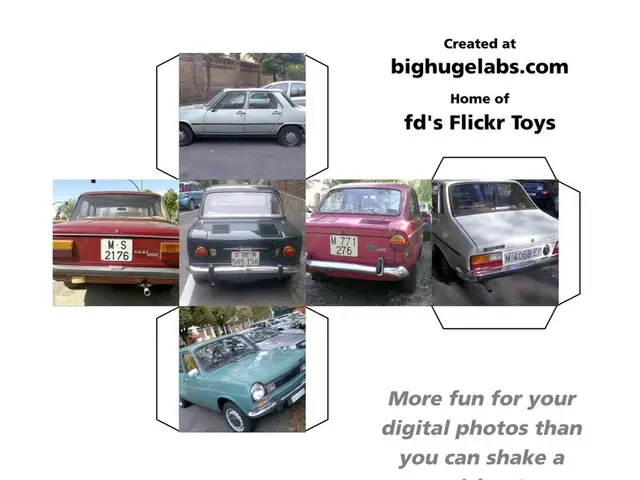"Encouraging Progress Found": Effort to Locate One of the World's Rarely-Spotted Pigeon Species Reaches Successful Milestone
Rare Tooth-Billed Pigeon Conservation Efforts Bolstered by Advanced AI-Based Bioacoustics Technology
The tooth-billed pigeon, also known as manumea or the "little dodo," has eluded scientists since its last documented sighting in 2013. The species, considered one of the rarest in the world, is the subject of renewed hope thanks to a groundbreaking collaboration between The Colossal Foundation and the Samoa Conservation Society.
In Samoa, the tooth-billed pigeon (Didunculus strigirostris) is revered as a national treasure. Once abundant in the thousands during the 1980s, the bird's numbers have been decimated by threats from invasive species, habitat loss, and hunting, leaving fewer than 100 birds remaining.
The collaboration's objective is to apply Colossal's advanced AI bioacoustic tools to locate and study the remaining tooth-billed pigeons. The technology uses a custom-made audio classification pipeline, trained to identify the unique calls of the elusive bird with 95% accuracy.
To create the AI-based model, the team built upon existing open-source bird call classifiers designed for more common species. Subsequently, they incorporated a denoiser to reduce background noise in recordings from Samoa and automated a one-shot bird call classification pipeline tailored for rare species neglected in extensive vocalization datasets.
The technology's ability to pinpoint the pigeons' locations aids conservation efforts in nearly impossible tasks such as capturing live individuals for biobanking—the process of collecting and cryogenically preserving tissue samples. These samples can potentially be used for research, cloning, or establishing captive breeding programs that could serve as safeguards against extinction.
Matt James, Colossal's Chief Animal Officer, explained, "Once we have collected and processed tissue samples, we will store them in our biobank for future use in research or cloning. If necessary, we will thaw the samples, culture out more cells, and create embryos to transfer into a surrogate mother—either to create a recovery population for critically endangered species or to establish a captive breeding program when wild populations cannot be secured."
The partnership between The Colossal Foundation, the Samoa Conservation Society, the IUCN SSC Pigeon and Dove Specialist Group, and BirdLife International aims to use this groundbreaking technology to locate the creatures, biobank live specimens, and assess the feasibility of establishing captive breeding programs to prevent extinction.
It's a thrilling time for tooth-billed pigeon conservation efforts, as these advanced means of detection promise to bring the species back from the brink of extinction.
- The renewed hope for the tooth-billed pigeon necessitates the application of science, specifically advanced AI bioacoustic tools, in locating and studying this critically endangered species.
- Genetics and climate-change research stand to benefit from the collected tissue samples of the tooth-billed pigeon, potentially aiding in cloning or establishing captive breeding programs to prevent extinction.
- Environmental-science organizations such as the IUCN SSC Pigeon and Dove Specialist Group and BirdLife International have joined forces with The Colossal Foundation and the Samoa Conservation Society to employ technology for the conservation efforts of the tooth-billed pigeon.
- Despite being one of the rarest species in the world, the tooth-billed pigeon has become the subject of business interest, with organizations using cutting-edge technology to secure its future and preserve biodiversity.
- The tooth-billed pigeon's elusive nature has been matched by advancements in AI technology, which now allows for highly accurate identification of its unique calls, opening new possibilities for scientific research.
- The application of technology in the field of environmental-science is not limited to space exploration; it also plays a crucial role in the preservation of endangered species like the tooth-billed pigeon, contributing to a more sustainable lifestyle and a healthier environment.
- In the realm of sports and entertainment, the success of the tooth-billed pigeon conservation efforts could become a beacon of hope, inspiring greater initiatives aimed at safeguarding endangered species and promoting the importance of environmental conservation.








